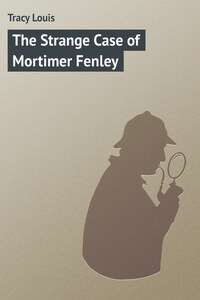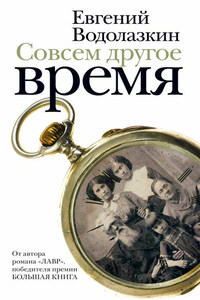CHAPTER I
A GATHERING AT A CLUB
That story of love and crime which figures in the records of the New York Detective Bureau as “The Yacht Mystery” has little to do with yachts and is no longer a mystery. It is concerned far more intimately with the troubles and trials of pretty Winifred Bartlett than with the vagaries of the restless sea; the alert, well-groomed figure of Winifred’s true lover, Rex Carshaw, fills its pages to the almost total exclusion of the portly millionaire who owned the Sans Souci. Yet, such is the singular dominance exercised by the trivial things of life over the truly important ones, some hundreds of thousands of people in the great city on the three rivers will recall many episodes of the nine days’ wonder known to them as “The Yacht Mystery” though they may never have heard of either Winifred or Rex.
It began simply, as all major events do begin, and, of course, at the outset, neither of these two young people seemed to have the remotest connection with it.
On the evening of October 5, 1913 – that is the date when the first entry appears in the diary of Mr. James Steingall, chief of the Bureau – the stream of traffic in Fifth Avenue was interrupted to an unusual degree at a corner near Forty-second Street. The homeward-bound throng going up-town and the equally dense crowd coming down-town to restaurants and theater-land merely chafed at a delay which they did not understand, but the traffic policeman knew exactly what was going on, and kept his head and his temper.
A few doors down the north side of the cross street a famous club was ablaze with lights. Especially did three great windows on the first floor send forth hospitable beams, for the spacious room within was the scene of an amusing revel. Mr. William Pierpont Van Hofen, ex-commodore of the New York Yacht Club, owner of the Sans Souci, and multi-millionaire, had just astonished his friends by one of the eccentric jests for which he was famous.
The Sans Souci, notable the world over for its size, speed, and fittings, was going out of commission for the winter. Van Hofen had marked the occasion by widespread invitations to a dinner at his club, “to be followed by a surprise party,” and the nature of the “surprise” was becoming known. Each lady had drawn by lot the name of her dinner partner, and each couple was then presented with a sealed envelope containing tickets for one or other of the many theaters in New York. Thus, not only were husbands, wives, eligible bachelors, and smart débutantes inextricably mixed up, but none knew whither the oddly assorted pairs were bound, since the envelopes were not to be opened until the meal reached the coffee and cigarette stage.
There existed, too, a secret within a secret. Seven men were bidden privately to come on board the Sans Souci, moored in the Hudson off the Eighty-sixth Street landing-stage, and there enjoy a quiet session of auction bridge.
“We’ll duck before the trouble gets fairly started,” explained Van Hofen to his cronies. “You’ll see how the bunch is sorted out at dinner, but the tangle then will be just one cent in the dollar to the pandemonium when they find out where they’re going.”
Of course, everybody was acquainted with everybody else, or the joke might have been in bad taste. Moreover, as the gathering was confined exclusively to the elect of New York society, the host had notified the Detective Bureau, and requested the presence of one of their best men outside the club shortly before eight o’clock. None realized better than he that where the carcass is there the vultures gather, and he wanted no untoward incident to happen during the confusion which must attend the departure of so many richly bejeweled ladies accompanied by unexpected cavaliers.
Thus it befell that Detective-Inspector Clancy was detailed for the job. Steingall and he were the “inseparables” of the Bureau, yet no two members of a marvelously efficient service were more unlike, physically and mentally. Steingall was big, blond, muscular, a genial giant whose qualities rendered him almost popular among the very criminals he hunted, whereas those same desperadoes feared the diminutive Clancy, the little, slight, dark-haired sleuth of French-Irish descent. He, they were aware instinctively, read their very souls before Steingall’s huge paw clutched their quaking bodies.
Idle chance alone decided that Clancy should undertake the half-hour’s vigil at the up-town club that evening. All unknowing, he became thereby the controlling influence in many lives.
At eight o’clock an elderly man emerged from the building and edged his way through the cheery, laughing people already grouped about the doorway and awaiting automobiles. Mr. William Meiklejohn might have been branded with the word “Senator,” so typical was he of the upper house at Washington. The very cut of his clothes, the style of his shoes, the glossiness of his hat, even the wide expanse of pearl-studded white linen marked him as a person of consequence.
A uniformed policeman, striving to keep the pavement clear of loiterers, recognized and saluted him. The salute was returned, though its recipient’s face seemed to be gloomy, preoccupied, almost disturbed. Therefore he did not notice a gaunt, angular-jawed woman – one whose carriage and attire suggested better days long since passed – who had been peering eagerly at the revellers pouring out of the club, and now stepped forward impetuously as if to intercept him.














